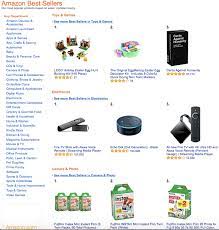Launching your own branded goods on Amazon is one of the most profitable ways to sell things online, which is why the private label business model is so popular among Amazon sellers.
The private label business strategy is used by 59 percent of Amazon sellers for their own brand and product line, according to Jungle Scout’s 2022 State of the Amazon Seller study.
What do Amazon Private Label Products entail?

Private label items are simply things developed by one firm that is then branded, promoted, and sold by another – and why shouldn’t that company be you?
Furthermore, selling your private label items through Amazon FBA is one of the most profitable methods to do so. From electronics to cosmetics, clothes to food, you might profit right now by developing and marketing your own private label items.
You won’t need to turn your garage into a factory. To produce anything new, you will not need to hire an inventor.
What are the benefits of selling private label items on Amazon?
There are a variety of reasons why selling private label items is the most popular sales strategy on Amazon, despite the fact that there are other alternative options.
You are the brand’s owner.
Unlike arbitrage or wholesale, where you would resell things from other companies, private labeling implies the brand belongs to your firm. The private label concept gives you complete control over how you sell, grow, and price your items.
You don’t need to seek brand approval or jump through hoops to discover low-cost items to resale for a profit.
Profit margins that are higher
Your expenses are substantially cheaper than if you were reselling things from other brands since you’re obtaining your products straight from a manufacturer or supplier. When you sell wholesale items, you’re buying from a brand owner or distributor who has marked up the price of the item, leaving you with a lower profit margin.
There is no middleman with private label items. You’re trying to get the best deal on inventory.
Make your product unique.
Customize the product to your heart’s content. Look at customer evaluations on rival items and pay attention to what problems individuals are having with their purchases – these are excellent indicators. After that, you can figure out how to make your product even better than the best-selling ones.
With this sales strategy, you may be strategic, seek out methods to improve the product, and outperform the competition. Putting a brand on a product isn’t enough; this is where you can collaborate with your supplier and graphic designer to make your product stand out. It will be difficult to compete if you sell something that looks exactly like every other product on Amazon.
The Amazon listing is under your creative control.
You generate a new listing in the Amazon marketplace when you introduce a private label product. This means you can make quick changes to photos, price, listing content, and keywords whenever you choose.
Because you were not the seller who posted the goods, it’s difficult to alter or duplicate the photographs if needed if you’re reselling on an existing Amazon product description page.
There will be no competition for the Buy Box.
If you resale other companies’ items on Amazon, you’re likely vying with other marketplace vendors for the Buy Box. If your offer isn’t in the Buy Box when a consumer buys something, you won’t get the money.
You will be the only vendor on the listing with private label, and you will control 100% of the Buy Box.
Conclusion
In 2022, you don’t need any special training to sell private label products on Amazon. You just need good research and negotiating skills and the drive to succeed. Soon, you could be building your Amazon private label business and getting customers to buy from you again and again because they like your brand.
